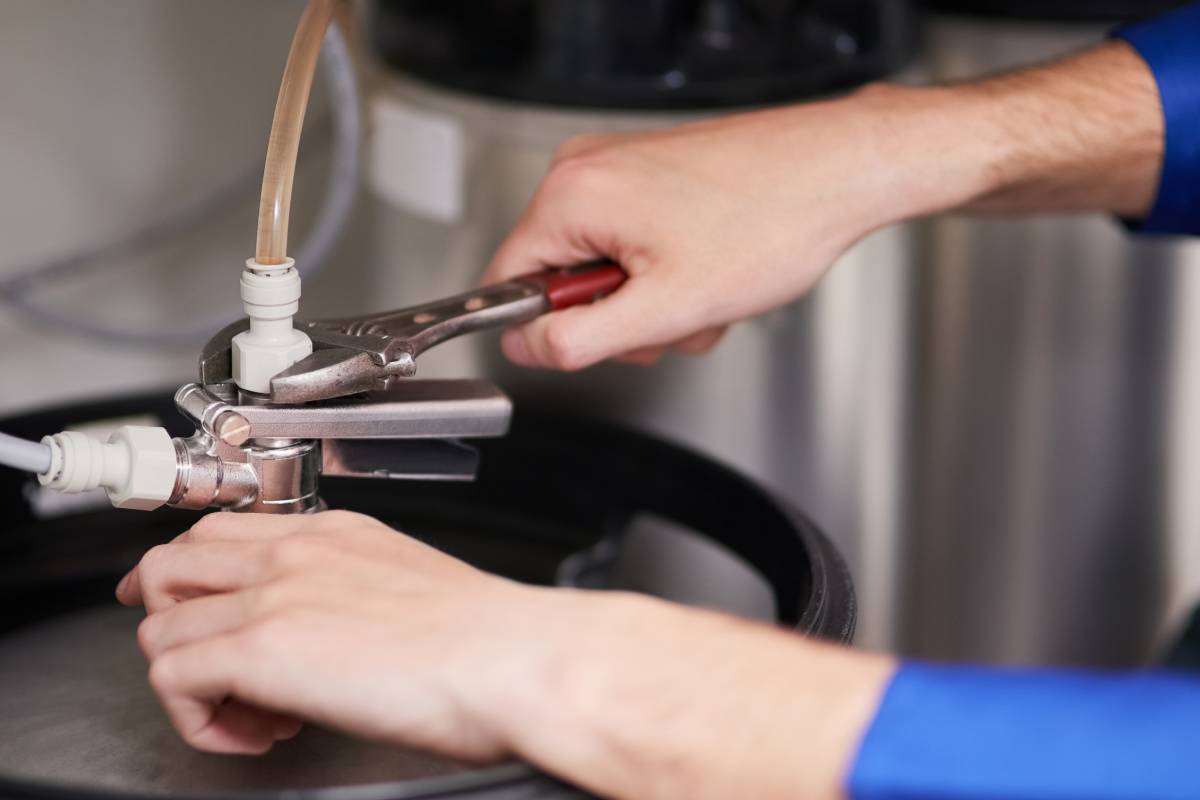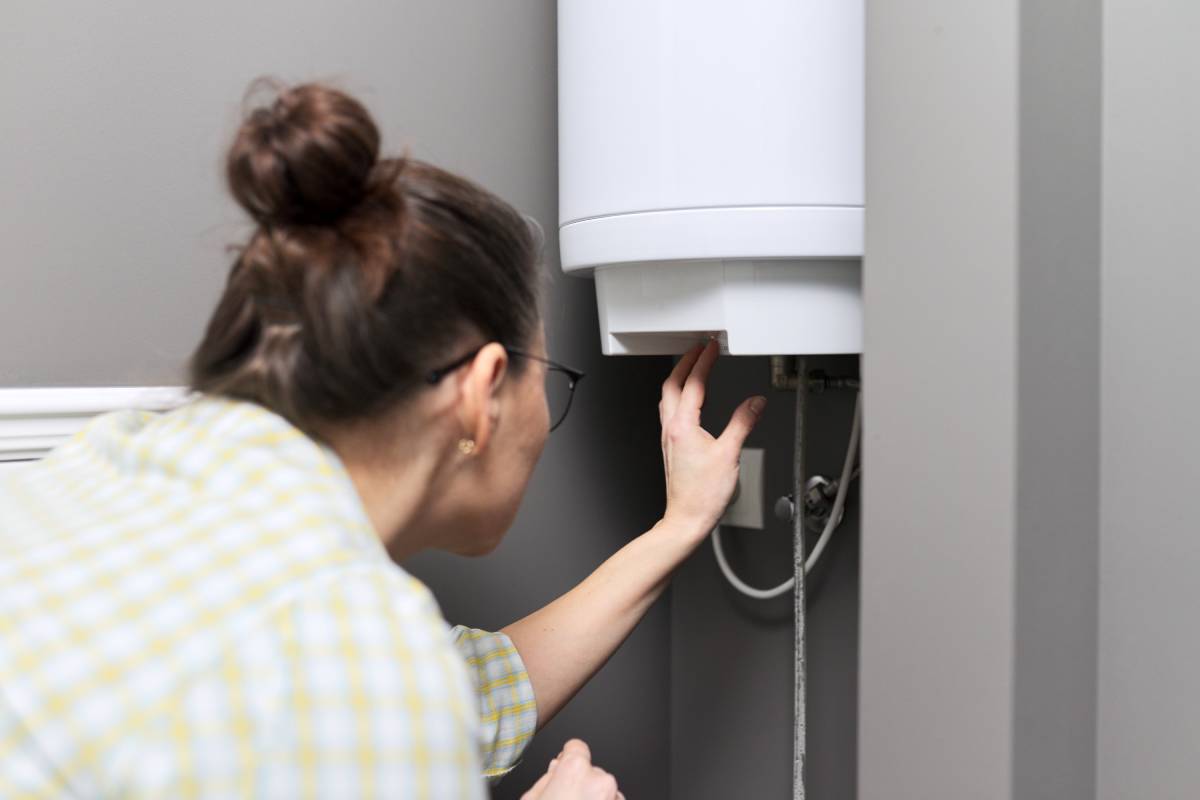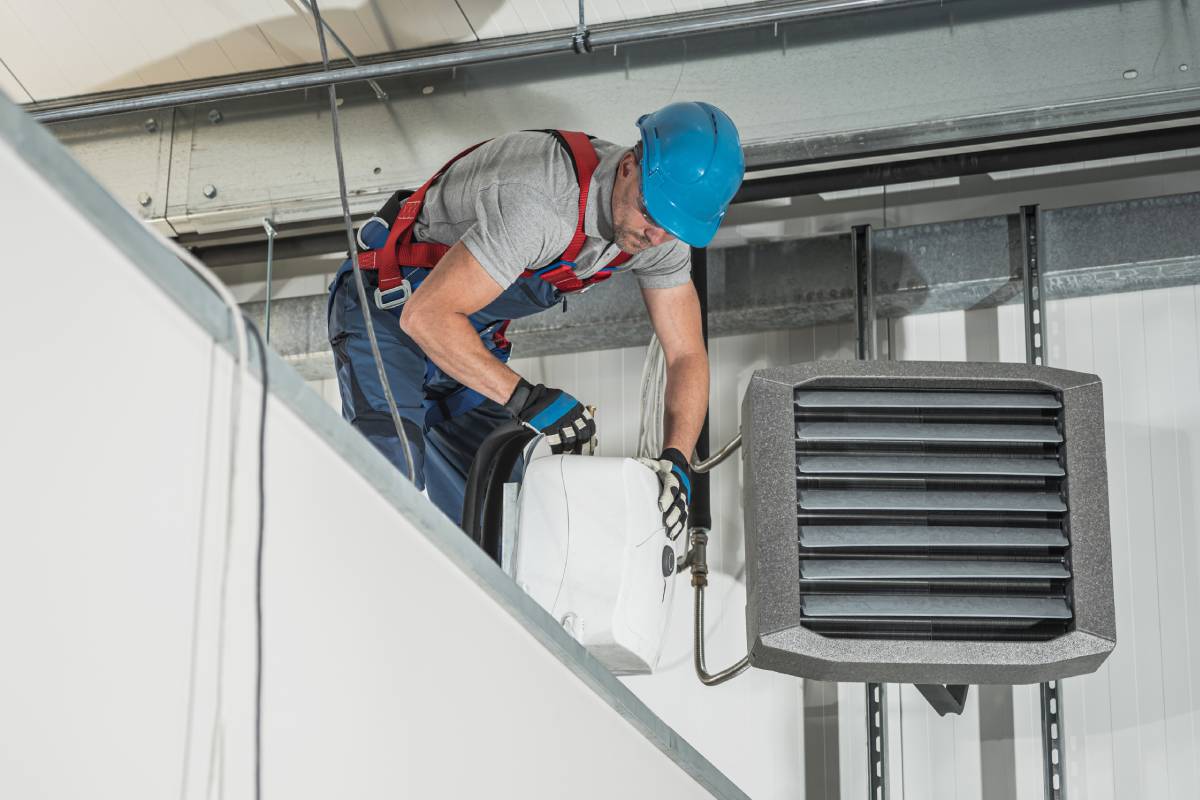If your hot water heater isn’t working, you might assume that you need a professional to sort it out. However, there are common issues, such as leaks, not enough hot water, or discoloured water, that you can tackle on your own. Sometimes, all it takes is a simple adjustment or pushing a reset button.
But Before you start fixing anything, make sure that your water heater comes with a warranty that covers some professional repairs or not. Look at the paperwork that came with your water heater or check the label on the side of the heater that shows the model and serial number. These numbers indicate the tank’s production year and can help you figure out if the tank has a warranty that could provide a new tank or parts, either for free or at a reduced cost. Keep in mind that warranties usually don’t cover the cost of labour.
Now that everything is set, we are going to move on to why your water heater is not working and how to fix it.
Related article: How to DIY Clear a Clogged Shower Drain
10 Reasons Why Is Your Hot Water Heater Not Working.
So, why is your hot water heater not working? The answers are several, we have listed them into 10 common issues and we’ll get through them one by one.
1. No Hot Water
When your water heater isn’t providing hot water, it could be due to a lack of power, a tripped limit switch, or malfunctioning heating elements.
2. Inadequate Hot Water
If your water heater is making some hot water but not enough, it may be too small for your household’s hot water needs.
3. Water Temperature Is Too Hot
If your water is excessively hot, it’s likely because one or both of your water heater’s thermostats are set too high.
4. Water Heater Is Leaking
Water leaks in water heaters often result from leaky valves and plumbing connections. If the water feels warm or hot when you touch it, the outlet pipe is likely the source of the leak.
5. Rust-Coloured Water or Unpleasant Odour
When water with a brown, yellow, or red tint comes out of your faucets, it might mean that the inside of your water heater tank is corroded. If the hot water smells like rotten eggs, there may be bacteria in the tank.
6. Tank Making Noises
If you hear strange sounds like low rumbling, popping, or high-pitched whining from your water heater, it could mean that the water inside the tank is getting too hot. The culprit is often sediment buildup at the tank’s bottom, causing overheating and boiling.
7. Leaking Cold Water Inlet
When you notice water collecting at the top of your water heater, it may be due to a leak in the cold water inlet, located at the top of the heater. Tightening this connection often stops the water from leaking.
8. Damaged Pressure Relief Valve
The temperature pressure relief valve on the side of the water heater may develop a slow leak. In many cases, you can replace the valve yourself.
9. Water Heater Is Leaking From the Sides
If you notice water seeping from the sides of your water heater, it’s likely due to a damaged or corroded tank, causing water to escape from specific areas like holes or cracks.
10. Condensation on the Water Heater
Sometimes, water heaters that seem to be leaking are actually experiencing condensation. In this case, you’ll see moisture spread over the outside of the tank, rather than originating from specific cracks or inlet issues.

How to Fix Your Hot Water Heater?
How to Fix: No Hot Water
- Check the circuit breaker for your water heater in the electrical panel to ensure it’s not tripped. If it has tripped, switch it from the OFF to ON position.
- If the circuit breaker is fine, reset the high-temperature limit on the heater. Turn off the power to the water heater in the electrical panel, remove the access panel, and press the red high-temperature reset button.
How to Fix: Inadequate Hot Water
- If your water heater is undersized, manage hot water use by taking shorter showers, installing low-flow showerheads, and scheduling dishwashing and laundry at different times of the day.
- If your heater used to provide sufficient hot water but suddenly doesn’t, one or both of its heating elements could be faulty:
- A consistent supply of lukewarm water during a shower may indicate a defective upper heating element.
- Quickly running out of hot water may signal a problem with the lower heating element.
In either case, it’s best to have a professional replace the heating elements or consider replacing the entire water heater.
How to Fix: Water Temperature Is Too Hot
- Turn off the power to your water heater from the electrical panel.
- Remove the access panel and ensure that the thermostat settings on both units are not above 50°C (~120°F).
- Adjust the settings to your desired temperature by turning the set screw with a flathead screwdriver.
How to Fix: Water Heater Is Leaking
- Inspect your water heater for loose inlet or outlet pipes.
- Use a wrench to tighten any loose connections to stop the leak.
How to Fix: Rust-Coloured Water or Unpleasant Odour
For discoloured water, contact a plumber to replace the anode rod in the water heater tank. An anode rod is a metal rod inside the water heater that corrodes more easily than the tank itself. This attracts corrosive oxygen away from the tank.
How to Fix: Tank Making Noises
- Turn off the power and water supply to your water heater.
- Completely drain the water heater to get rid of both water and sediment:
- Connect a garden hose to the valve at the bottom of the water heater, with the other end outside.
- Open both the temperature pressure relief valve at the top and the drain valve at the bottom.
- After all the water and sediment have drained out, close the bottom valve and the upper-pressure relief valve, then remove the hose.
- Turn the power and water back on.
How to Fix: Leaking Cold Water Inlet
- First, turn off the water supply to the water heater.
- Use a wrench to tighten the inlet connection by turning it clockwise.
- Turn the water supply back on, dry the top of the water heater, and check for any further leakage.
How to Fix: Damaged Pressure Relief Valve
- Turn off the electricity and the cold water supply to the water heater.
- Release water and pressure by opening the valve with a bucket placed below the plastic relief valve drain pipe.
- Unscrew the pressure relief valve using a pipe wrench.
- Screw the new valve into the water heater, making sure to use the plumber’s tape.
- Attach the plastic relief valve drain pipe.
How to Fix: Water Heater Is Leaking From the Sides
Any tank with such damage or corrosion on the tank itself needs to be replaced, as it’s not safe to repair them.
How to Fix: Condensation on the Water Heater
Water heater condensation usually doesn’t signal a problem with the heater, but excessive moisture can harm your floor.
- Lower the temperature to 50°C (~120°F) or even lower, such as 45-46°C (~115°F).
- Consider hiring a plumber to disconnect the water heater and install a drain pan underneath to capture any drips.
How to Maintain Your Hot Water Heater
Maintaining your water heater is essential to prevent future issues and ensure it operates efficiently. A key step in this maintenance routine is draining the water heater at least once a year. This helps remove sediment buildup, which can impair the heater’s performance. Another important aspect is insulating the pipes connected to the heater, as it reduces heat loss and can save energy.
Regular inspections by a professional are also crucial to catch any potential problems early. Additionally, it’s advisable to keep the water heater’s temperature at 50°C (~120°F) or lower to prevent overheating and reduce the risk of scalding. Periodically testing the temperature pressure relief valve, ideally once or twice a year, is essential for safety; use a bucket to catch the water discharge during the test.
Finally, don’t forget to have a plumber replace the anode rod about every five years to protect the tank from corrosion and extend the water heater’s lifespan.








